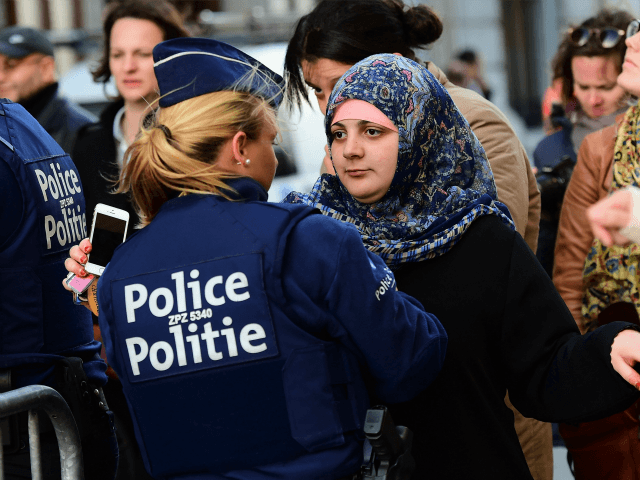BRUSSELS (AFP) – A year after the Brussels bombings, Belgium is more secure but it faces the threat of battle-hardened jihadi fighters returning home as Islamic State makes its last stand, interior minister Jan Jambon said.
“The question is whether IS will order them to fight to the last man or tell them to go home and cause as much damage as possible,” Jambon told AFP in an interview.
“We have not seen any sign of a mass exodus so far but I can assure you that every intelligence service in every country is working on it,” he said.
Jambon said tighter security had made Belgium safer than it was when home-grown suicide bombers killed 32 people at the airport and a metro station on March 22 last year.
Belgium’s federal prosecutor Frederic Van Leeuw told AFP in November that the cell that carried out the Brussels bombings, and was involved in the Paris attacks, had got its orders from high up in the IS command.
The carnage in Brussels and in Paris in November 2015 involved “IS fighters carrying out attacks aimed at causing the most casualties possible,” he said.
However, with European jihadists finding it harder to get to and from Syria and Iraq, “the IS no longer orders but inspires people to carry out attacks,” Jambon said.
That is the case for attacks perpetrated in the German capital Berlin in December, the French city of Nice in July and the southern Belgian city of Charleroi in August.
A machete-wielding man shouting “Allahu akbar” (God is greatest) attacked two policewomen in Charleroi, badly injuring one in the face, before a third officer shot him dead.
“I think we’re in that (new) phase,” said Jambon, a member of the Flemish nationalist N-VA party in a coalition government led by Prime Minister Charles Michel, a French-speaking Wallon.
– Intelligence sharing –
He said the intelligence services in Belgium and other countries were exchanging information to check for the possible return of jihadists as IS loses territory to regional forces backed by the US and other powers.
Numbering around 500, Belgium is the European Union’s largest per capita source of so-called foreign jihadist fighters, but Jambon said none had left the country for the Middle East since January 2016.
In another development that he described as “dangerous,” Jambon said the lines were blurring between peaceful and violent backers of Salafist ideas exported to Belgium from Saudi Arabia and other Gulf states.
Some experts have linked the ideology embraced by IS, Al-Qaeda and other violent groups to Salafism, a Sunni Muslim reform movement that promotes rigid interpretations of the Koran.
– ‘Right to think’ –
Jambon said he believes the Saudi government when it denies it is funding the spread of Salafist ideas to Belgium.
“But that does not mean there is no financing from (private) Saudis to certain groups.”
He said it was difficult to stop money transfers as well as curb the spread of extremist ideas in a democracy where “we have the right to think.”
He said his ministry was training and deploying more police than ever who will increasingly fight the small criminal gangs from which many Belgian jihadists have sprung.
He added the authorities were also benefitting from the cooperation of the Belgian public, including Muslim community leaders, but acknowledged jihadists had support from “a small minority.”
Since the attacks, Belgium has also enacted tighter security measures allowing the authorities greater powers to search and monitor suspects.
“So our country is today safer than it was in those days,” Jambon said.

COMMENTS
Please let us know if you're having issues with commenting.